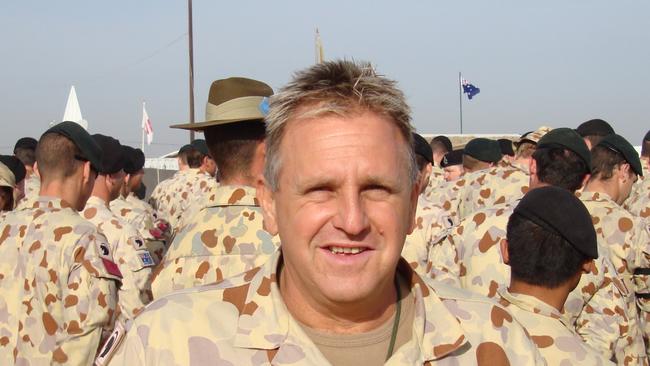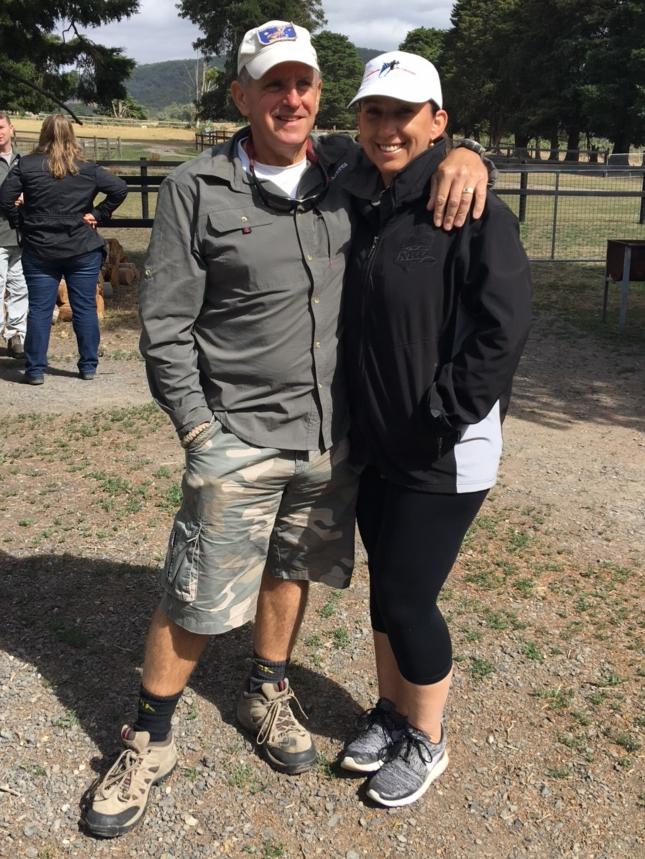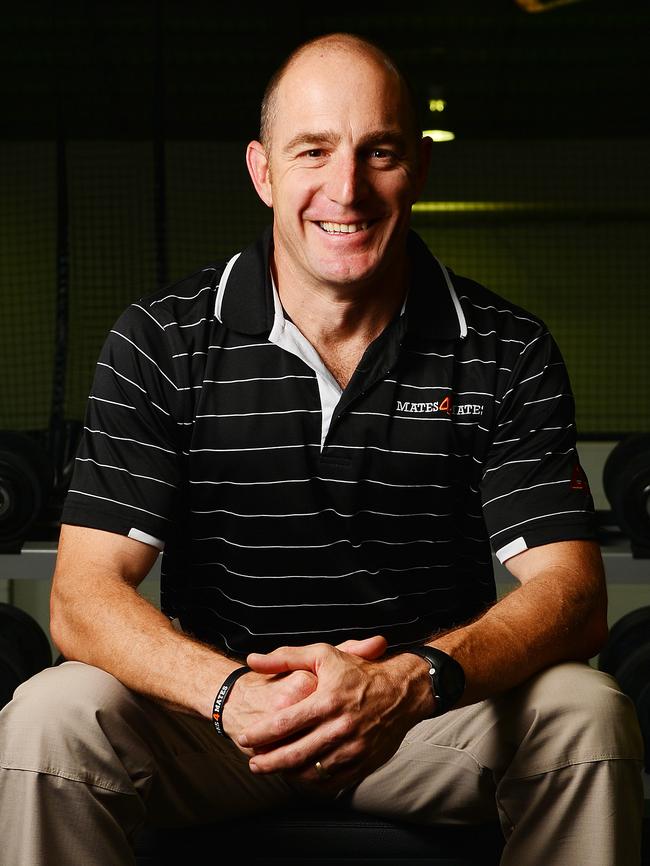Living with post-traumatic stress disorder
IT CAN happen at any moment. One minute he’s going about daily life, the next Rob Vonk is transported to a world of absolute horror. WARNING: STORY CONTAINS TRIGGERS

QLD News
Don't miss out on the headlines from QLD News. Followed categories will be added to My News.
THE sound of helicopter blades is enough to transport Rob Vonk back to the war zones of Iraq. His memory of the battlefield is so clear he can feel the warm exhaust of an army truck, smell the oil on his weapon and is often so disoriented by flashbacks of choppers taking off to collect the bodies of his fallen comrades he forgets where he is for a moment.
“The sound of a chopper chills me,” Mr Vonk told The Courier-Mail.
“It heightens my senses to the extent I have to check where I actually am.
“It reminds me of the hospital base in Iraq. When you would see four Black Hawks take off you knew there were four people that would be recovered in each.
“When I hear a chopper now I just think back to the carnage and waste of life that goes with it.”
Like many ex-servicemen and women in the Australian Defence Force Mr Vonk carries the battle scars of deployment to war zones such as Iraq and Afghanistan as painfully as a physical wound.
The smallest things can trigger post-traumatic stress disorder, enveloping him in feelings of darkness and depression. His feelings of hopelessness have left him so defeated he said he has even contemplated suicide several times.
But sadly Mr Vonk is one of the lucky ones. He didn’t slip through the cracks.

After suffering from mental trauma following 30 years in the military, he was encouraged by his wife to see a psychiatrist who suggested he attend a meeting with Mates4Mates, an organisation that supports ex-serving ADF members and their families who are wounded, injured or ill as a result of their service.
Although he admits he was sceptical at first, he finally found a place where he could speak about his experiences with people who had struggled through the same mental battles without judgement.
Mates hold therapy courses, events and gatherings where ex-soldiers can talk, get support and recover from their demons often alongside their families who often suffer with them.
Mr Vonk said the organisation is so effective at helping soldiers to battle issues such as social isolation, that several of Mates 4 Mates 1600 members have even told him the support they got from the organisation and its members had stopped them from taking their own lives.
“[Organisations such as] Mates4Mates provides a safety net for what the system is not meeting,” he said.
“Sometimes soldiers need help returning to civilian life, long-time serving soldiers know little of the “real world outside of the defence force”.
“One of the guys told me, ‘if it wasn’t for Mates I already planned my suicide, I already picked how I was going to kill myself.
“That’s happened to me three times.
“Mates is somewhere where a bloke can go and talk to someone.”
Its charity groups such as these that are scrambling to fill the void of services which should be offered by the ADF, Mr Vonk said.
They’re also the subject of an ongoing senate committee inquiry into the issue of veteran
suicide.
Mates 4 Mates recently made a submission to the committee calling for a variety of new measures to help battle veteran suicide, including addressing social isolation, a more holistic approach to rehabilitation and specialised training for clinicians and transition and employment support workers.
“The way in which a veteran views the world is often markedly different to how a civilian views the world,” the submission said.
“The deeply embedded and persistent training which military personnel receive to set them up to be effective soldiers, sailors and air men and women creates sets of behavioural, social and moral rules.
“These rules are like lenses through which veterans view the world.
“Unless clinicians know that these rules or lenses exist and understand the context... they will have little hope of developing positive therapeutic relationships.”

At present veterans struggle to know whether their provider has undertaken training provided by the department of veteran affairs.
Mates4Mates said psychologists often “hear from current or ex-service personnel that they have seen so many psychologists previously and had all but given up on them because they felt none of them understood where they were coming from,” the submission said.
Mr Vonk said it’s this shared experience that allows veterans to open up and tackle their mental health issues at Mates4Mates.
“PTSD is a terrible thing, you go into quite severe depression, blackness where you’re not able to see your future,” he said.
“I know guys who have done six or seven tours of Iraq or Afghanistan, say they did 42 months total in a war zone, that’s 42 months of the highest amount of adrenaline that will pump through your body in three lifetimes,” he said.
“You’re continually on a high and when you get back it’s hard to adjust.
“They’re the things you live with, things that other people wouldn’t notice or understand.
“You don’t spill your guts to a guy in a recovery centre on base because you’re guarded, but when you come to Mates4Mates you let your guard down because you know you’re there to support each other.”
Mates 4 Mates chief executive officer Simon Sauer said “more can always be done” to prevent veterans from falling through the cracks and he is hopeful the findings of the inquiry will lead to additional resources.


